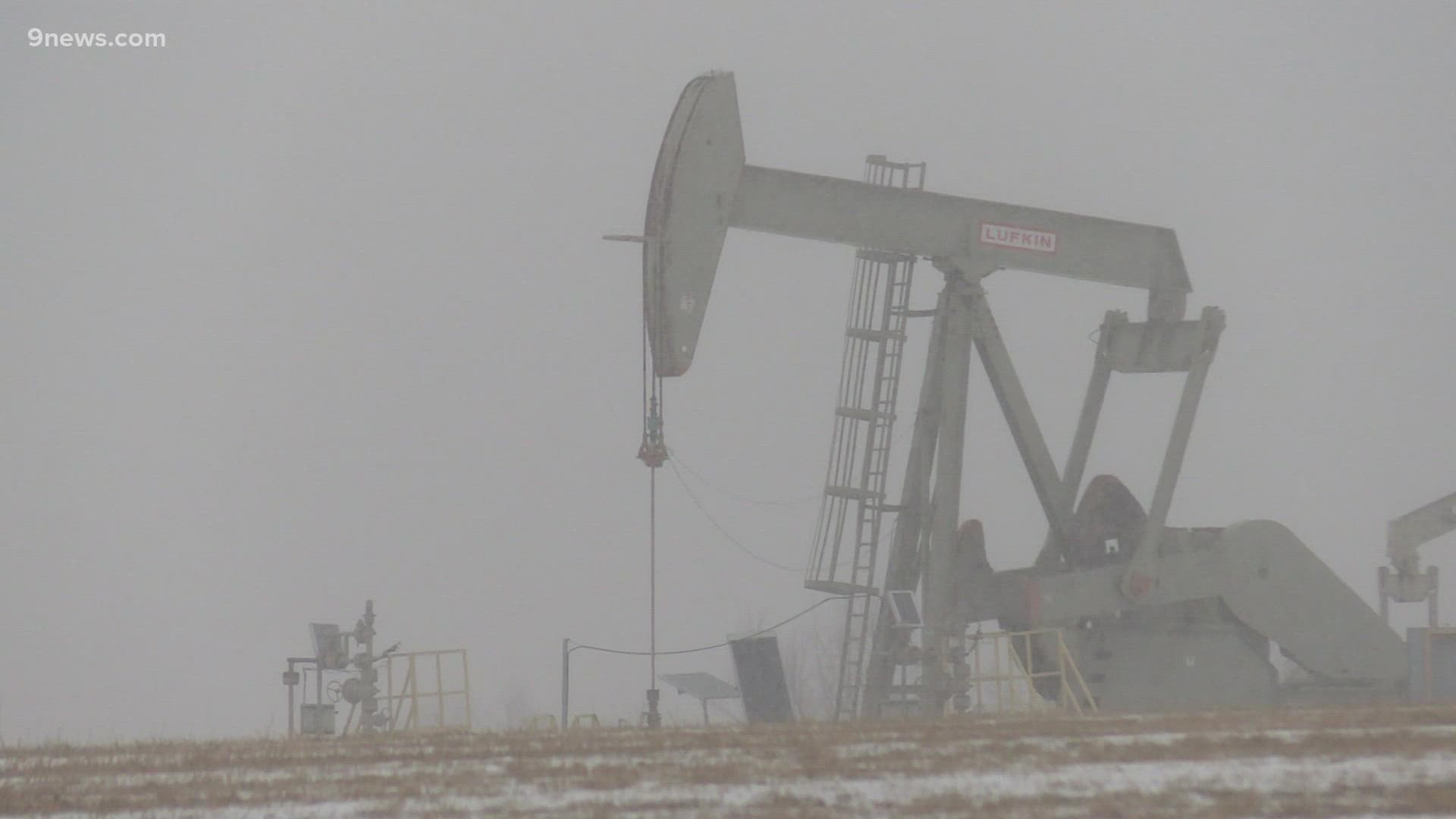DENVER — Colorado Democrats made a big deal about a 2019 law regulating oil and gas operations with a focus on public health, safety and the environment.
But oil and gas companies in Colorado do not have to reveal every single chemical they use in fracking.
They can hide them claiming "trade secrets."
A new report out of Washington D.C. by Physicians for Social Responsibility (PSR), a watchdog group critical of the oil and gas industry, points out that Colorado allows oil and gas companies to shield some of the chemicals they use if they're considered trade secrets.
"Companies have the ability to hide chemical identities from the public, and even from regulators, by naming them trade secrets," said Dusty Horwitt, author of the PSR report. "We can't know, in those cases, if the chemical is relatively benign or if it's something very dangerous like a forever chemical."
What is a forever chemical? Per- and Polyfluoroalkyl Substances (PFAS).
"These are man-made chemicals. As I always say, since nature did not make them, nature does not know how to break them," said Shubham Vyas, Associate Professor of Chemistry at the Colorado School of Mines. "In the last couple of decades we have learned that these compounds can cause serious diseases in human beings."
If PFASs sound familiar, it is because you likely use products with them.
"They have been used in consumer goods. In non-stick cook wares. In paint, Anything and everything where you need a nonstick coating, people have used PFASs," said Vyas.
Oil and gas companies have to report to the chemicals they use during fracking to FracFocus. If they declare a trade secret chemical, and it gets approved by state oil and gas regulators, they can list the chemical by an identifier like "Quaternary Ammonium Compound" or "Organic Surfactant."
"A lot of PFAS compounds are surfactants We use surfactants all the time for all different kind of applications. To create foams. To clean dirty clothes. To wash our hands. We have surfactants all around us, but a lot of PFASs are also surfactants," said Vyas. "We don't use PFAS surfactants in our soap. We don't use them in our laundry. Those are different surfactants that nature can actually break."
Why would a PFAS be used in fracking?
"They repel water, they repel oil, so if I have to suspect these compounds are used so that they will not be easily mixable or they will not get easily mixed with oil and you can easily separate them," said Vyas.
"The controversy over disclosure is really focused on approximately .5% of frack fluid," said Lynn Granger, Executive Director of American Petroleum Institute.
Granger said that during fracking, 90% of what goes into the ground is water and 9.5% is sand. The final .5% are chemicals.
"The substances that are most commonly found in that .5% of frack fluid are also commonly found in food, cosmetics, detergents and other household products," said Granger.
Of that .5%, she said that a fraction of that are trade secret chemicals.
"They are generally protecting specific ingredients with additives that commonly represent about a thousandth of a percent, so .001% of the total frack fluid volume," said Granger.
She said that a trade secret designation would be to incentivize service companies to come up with ways to use less freshwater or more environmentally friendly chemicals, without giving up information to competitors.
"I think you would find that companies in a variety of industries avail themselves of the benefits of trade secret protections," said Granger.
PSR would like Colorado to adopt California standards, which require disclosure of all chemicals, just not necessarily the proportions. Similar to nutritional labelling requirements.
"The oil and gas companies (in California) have to disclose all of the individual chemicals that they use in fracking, but they don't have to tell you the recipe," said Horwitt. "Companies, basically, have to disclose all of their ingredients to the public. What you can't know is the recipe. What proportions of those ingredients are mixed together. And that's the kind of disclosure that Colorado should have."
SUGGESTED VIDEOS: Full Episodes of Next with Kyle Clark

